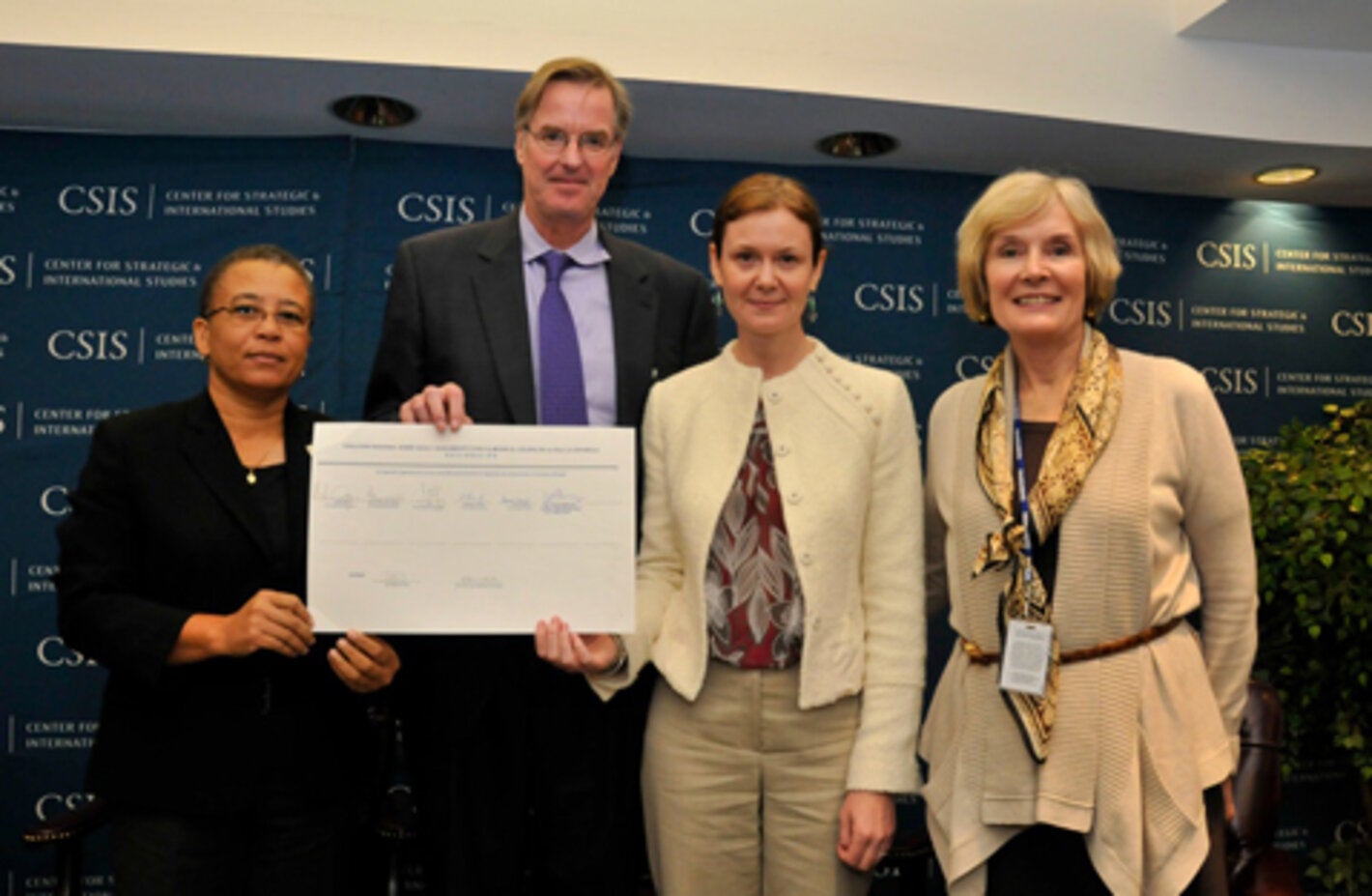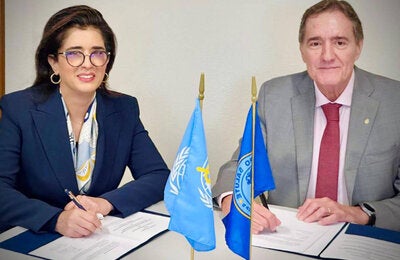
Washington, DC, 17 October 2012 — Marking the fifth annual Global Handwashing Day on October 15, and approaching the second anniversary of the first case of reported cholera in Haiti in 2010, Partners in Health, Veolia Environment Foundation, Zanmi Lasante, and Catholic Relief Services became the newest members of the Regional Coalition on Water and Sanitation for the Elimination of Cholera in the Island of Hispaniola.
The announcement was made during an expert-led symposium co-sponsored by the Center for Strategic International Studies (CSIS) and the Pan American Health Organization (PAHO) to discuss the ambitious efforts of the Coalition.
The Coalition was originally launched in June 2012 to bring together technical expertise, raise new funds, and mobilize previously committed pledges to support the governments of Haiti and the Dominican Republic in improving access to water and sanitation. The Coalition evolved from a call to action that the governments of Haiti and the Dominican Republic put forward last January. This call to action was originally supported by a core partnership of PAHO, the Centers for Disease Control and Prevention (CDC), and UNICEF. Efforts since have focused on expanding the partnership, thus resulting in the more formal Coalition of 17 partners.
Experts participating in the symposium described the opportunities presented by regional collaboration on water, sanitation, and hygiene (WASH) activities, and identified opportunities for greater engagement on cholera elimination by the non-government sector.
Since the start of the cholera outbreak nearly two years ago, approximately 600,000 people have fallen ill due to cholera in Haiti with more than 7,500 deaths. The Dominican Republic has reported more than 25,000 cases and approximately 350 deaths from cholera over the same time period.
Individuals in resource-poor areas, like those that exist throughout Haiti, without access to safe drinking water, proper sanitation, and hygiene constitute the majority of cholera cases. Drinking unsafe, cholera-infected water or eating contaminated food heighten the spread of the disease, leaving entire communities vulnerable to acute diarrheal disease, undernutrition and other related diseases.
WASH infrastructure and behavior change are the foundation for preventing illness and death associated with cholera. For example, simple handwashing with soap can reduce diarrheal disease by 45 percent. The application of culturally appropriate and economically feasible technologies is also fundamental for long-term success.
Dr. Jon Andrus, Deputy Director of PAHO, stated, "Today, we have a unique opportunity to expand the Regional Coalition by reaching out more extensively to the private sector and NGOs. This work is a priority and is grounded in the overarching strategy of safe water and sanitation for all the citizens of Haiti and the Dominican Republic. By implementing this strategy, water and sanitation as basic human rights will finally be accessible to everyone."
Dr. Jordan Tappero, Director of Health Systems Reconstruction Office at CDC, noted that a long term strategy is needed to expand the number of sanitary workers, especially to check and recheck the sources of water. "Few countries have declining access on WASH services as Haiti," he said, "and the earthquake only made things worse."
Kathleen Krackenberger, Senior Health and Human Resource Policy Advisor at the World Bank talked about their work on capacity building for the Ministry of Health of Haiti. She said that to enhance water and sanitation in the country was a key priority for the World Bank and also a way to create opportunities. "Building capacity is something we need to do all the time—not only for water and sanitation, but in every area," she added.
The coalition's other members are PAHO/WHO, UNICEF, the Centers for Disease Control and Prevention (CDC), the Spanish Agency for International Development Cooperation (AECID), the Inter-American Development Bank (IDB), Brazil's National Health Foundation (FUNASA), the Association of Haitian Medical Physicians Abroad, the Inter-American Association of Sanitary and Environmental Engineering (AIDIS), the World Bank, the Caribbean Community (CARICOM), the International Federation of Red Cross and Red Crescent Societies, and WASH Advocates.



